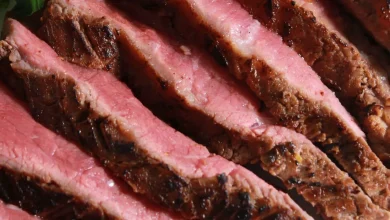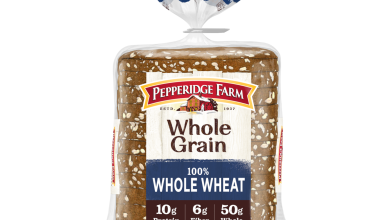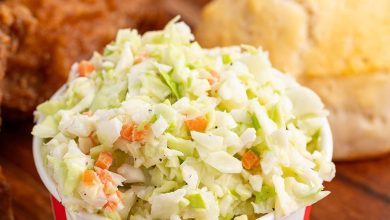Roast Veal Shoulder (Arm-Braised): Nutritional Benefits & Cooking Tips
Veal Shoulder (Whole, Arm-Braised, Cooked, Roasted)
Veal shoulder, specifically the arm-braised variety, is a flavorful and tender cut of meat that offers a satisfying combination of protein and essential nutrients. When roasted, it transforms into a savory, juicy dish that’s perfect for a hearty meal. Below is a breakdown of its nutritional composition, providing insight into its benefits and dietary contributions.
Nutritional Information per 100g
| Nutrient | Amount |
|---|---|
| Energy | 170 kcal |
| Protein | 25.81 g |
| Total Fat | 6.62 g |
| Saturated Fat | 2.5 g |
| Carbohydrates | 0.0 g |
| Dietary Fiber | 0.0 g |
| Sugars | 0.0 g |
| Calcium | 27 mg |
| Iron | 1.03 mg |
| Magnesium | 25 mg |
| Phosphorus | 218 mg |
| Potassium | 327 mg |
| Sodium | 97 mg |
| Zinc | 5.25 mg |
| Copper | 0.142 mcg |
| Manganese | 0.03 mg |
| Selenium | 10.9 mcg |
| Vitamin C | 0.0 mg |
| Thiamine (Vitamin B1) | 0.07 mg |
| Riboflavin (Vitamin B2) | 0.34 mg |
| Niacin (Vitamin B3) | 6.44 mg |
| Vitamin B6 | 0.26 mg |
| Folate | 13.0 mcg |
| Vitamin B12 | 1.86 mcg |
| Vitamin A | 0.0 mcg |
| Vitamin E | 0.5 mg |
| Vitamin D2 | 0.0 mcg |
Key Nutritional Highlights:
- High in Protein: Veal shoulder provides an impressive 25.81 grams of protein per 100 grams, making it an excellent choice for those seeking a lean source of high-quality protein.
- Rich in Essential Minerals: This cut is a valuable source of key minerals such as phosphorus (218 mg), potassium (327 mg), and zinc (5.25 mg), all of which contribute to various bodily functions, including bone health and immune support.
- Moderate in Fat: With 6.62 grams of total fat, including 2.5 grams of saturated fat, veal shoulder offers a moderate fat content that fits within a balanced diet.
- Vitamins: Though it contains minimal vitamin C and vitamin A, veal shoulder does provide a good amount of B vitamins, including niacin (6.44 mg), riboflavin (0.34 mg), and vitamin B12 (1.86 mcg), essential for energy metabolism and red blood cell production.
Dietary Considerations
- Allergen Information: Veal shoulder does not contain common allergens such as gluten, dairy, or nuts, making it suitable for a wide range of dietary needs.
- Dietary Preferences: This nutrient-rich cut of meat is appropriate for individuals following low-carb, high-protein, or keto diets due to its minimal carbohydrate content. It is also a good option for those on paleo or whole30 diets, provided it is prepared without additives like sugars or processed oils.
Cooking Tips and Preparation Advice:
- Roasting: When roasting veal shoulder, consider slow-cooking it at a low temperature to maintain its tenderness. You can marinate it with herbs and spices for additional flavor or rub it with olive oil and garlic before roasting for a savory finish.
- Pairing Suggestions: Serve veal shoulder with roasted vegetables, mashed potatoes, or a fresh salad to create a balanced and satisfying meal. It also pairs beautifully with red wine, enhancing the rich, savory flavor of the meat.
Conclusion:
Veal shoulder (arm-braised, roasted) is a nutrient-dense cut of meat that not only provides a high level of protein but also delivers essential vitamins and minerals beneficial for overall health. Whether enjoyed as a standalone entrée or paired with complementary sides, this versatile dish offers a wholesome and indulgent meal that is sure to impress at any gathering.
This nutritional overview emphasizes the health benefits of veal shoulder, making it an excellent addition to a balanced diet while also offering practical advice on how to prepare and enjoy it.








